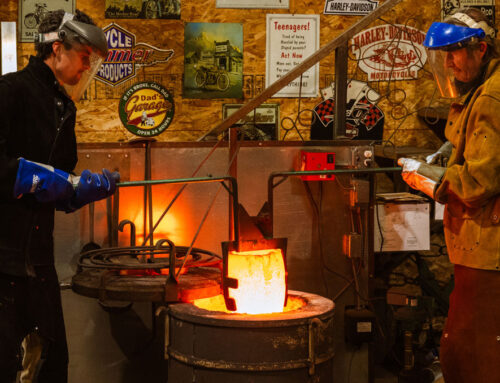 Bob Balmer is a writer and instructor with over three decades of experience in the craft. Bob, a retired school teacher turned humor writer, has been published in various publications and has conducted writing workshops for years, including here at BARN.
Bob Balmer is a writer and instructor with over three decades of experience in the craft. Bob, a retired school teacher turned humor writer, has been published in various publications and has conducted writing workshops for years, including here at BARN.
Bob is returning to BARN this month to teach a short course on creating resonant characters. We sat down with him recently to talk about creating relatable characters, using humor effectively, and the joys of teaching aspiring writers.
Q: How do you create relatable characters in writing?
A: I think it’s about understanding who they are, what their actions are, and how they treat others and themselves. For example, one of my favorite characters is Henderson by Saul Bellow. Henderson always said the wrong thing and had millions of dollars, but every time he got what he wanted, his heart kept beating “I want, I want, I want.” It was an exaggeration of being human, but that character resonated with me because of his efforts to be the best he could be, even though he was never quite good enough. I think some of us have that feeling.
Q: What’s your perspective on using humor in writing, especially when dealing with sensitive topics?
A: Comedy can be powerful, but it needs to be handled carefully. You can have a character who knows they’re funny, who walks in and tells a joke. Or you can have a character who’s unaware they’re hilarious, and their reactions to life make them funny. We can all relate to embarrassing or frustrating moments; humor often comes from embellishing those experiences. I think you can take small tragedies and turn them into humor if you have that bent. For instance, today I couldn’t find my charger cord – that could become a whole piece on the underwear drawer of technology.
Q: Can you tell us about your writing background and experience?
A: I’m a retired school teacher, and in college, I had a column for a newspaper in Western Oregon. I’ve been writing for about 35 years now, probably between 15 and 20 hours a week. My first published piece was in 1992 – a satire about football players and their GPAs. Since then, I’ve been published in various places like Oregon Coast Magazine, Eugene Weekly, and a few others. I’ve also conducted many writing workshops over the years.
Q: What makes a good character in your opinion?
A: I think good characters often have secrets or unexpected traits. For example, I once heard about a writer who said all good books have a character with a secret. I started thinking about classic novels and realized how true that was. Also, characters who are dichotomies – like a tough guy who’s secretly kind – can be really interesting. It’s important to show different sides of a character, not just make them one-dimensional. Most great characters have quirks that can get them into trouble but are still believable. Most people have some small quirk, and if you give characters interesting traits or habits, it can make them more relatable and memorable.
Q: What do you enjoy about teaching at BARN?
A: I’ve been teaching at BARN since January 2020 and enjoy it. The students are often experienced writers who are eager to learn and participate. They interact well in groups, and I rarely have to control discussions – if anything, I have to stop them because they’re so engaged! The organization itself is also excellent. They’re very responsive and well-organized, which makes it easier for me as an instructor. The attendees are eager to learn, and the facilities are always well-prepared. It’s a great combination of motivated students and a well-run organization.
Q: What final advice would you give to aspiring writers?
A: Albert Einstein once said that if he had an hour to solve a problem, he’d spend 55 minutes thinking about the question to ask. This applies beautifully to writing. The goal isn’t just to write but to ask the right questions that lead to meaningful writing. In my classes, I always start by creating a safe environment where everyone can try their best and explore ideas without judgment.
My advice to writers is this: Spend time thinking deeply about what you want to say. Don’t rush to put words on the page. Ask yourself probing questions. And remember, whether you’re writing humor or any other genre, the goal is to find your authentic voice. That’s where the real magic happens in writing.






Follow Us